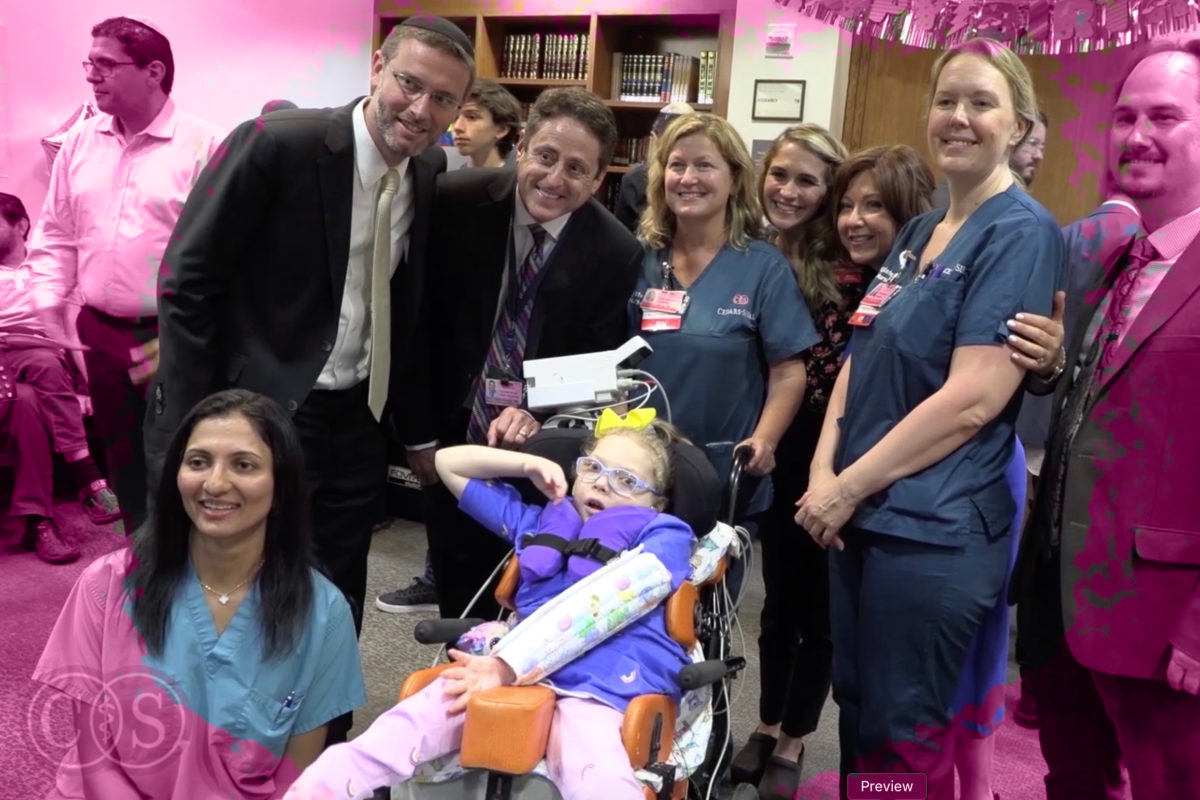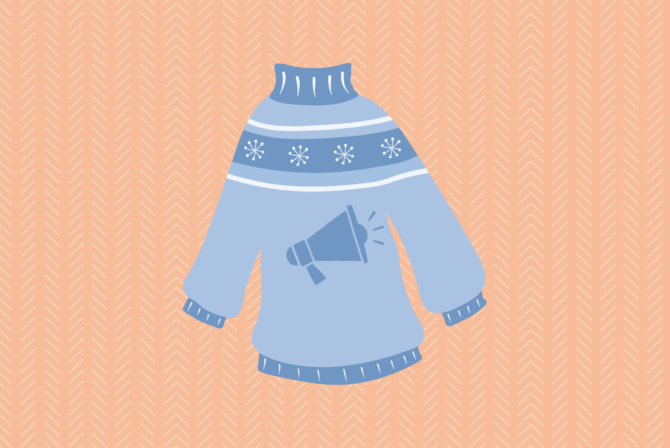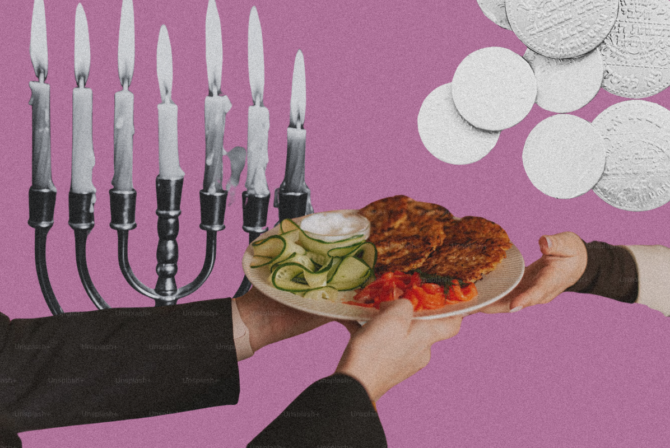In many ways, 12-year-old Numa Beron’s bat mitzvah was just like any other.
Numa’s mother painted her nails a bright pink and did her hair just so. There was naches; there were tears. There was music and dancing, a large room adorned with streamers and balloons, as well as the requisite screening of a video tribute to the bat mitzvah girl’s life.
Guests nibbled from trays heaped with all kinds of delicious food — yes, there was sushi — and an assortment of bright candies accompanied the birthday sheet cake, which was adorned with sugary roses and a picture of a unicorn.
But in many other ways, the bat mitzvah was a very atypical one. For starters, this bat mitzvah didn’t take place at a synagogue social hall or a glitzy event space but at the chapel at Los Angeles’s Cedars Sinai Medical Center, where the bat mitzvah girl has been hospitalized for the last three and a half months.
Numa has lissencephaly, a brain malformation that makes her unable to move and speak. Her parents, Vlad and Iliana Beron, were told she wouldn’t live beyond the age of 3. Yet here she was, having made it all the way to this important right of passage — no doubt thanks, in part, to the love and care of her family.
“It’s clear that the family just loves Numa, they’re visiting every chance that they can,” said Dr. Gary Goulin, associate director of the Pediatric Intensive Care Unit, who has cared for Numa for seven years.”It’s just wonderful to see such a cohesive and loving family.”
Numa’s bat mitzvah was an important rite of passage, father Vlad told Kveller over email. “On the most basic level,” the family wants to give Numa, who is the sixth of seven children, a “sense of normalcy and equivalency with the rest of her siblings.”
“My wife and I firmly believe that she leads a life imbued with Yiddishkeit, and she understands and participates at her level of abilities,” he added.
Numa’s parents are immigrants from the former Soviet Union, so instilling Jewish traditions is especially important to them. “We managed to maintain our Yiddishkeit behind the Iron Curtain, even in the face of raw and brutal anti-Semitism and the genocidal mindsets of Hitler and Stalin,” he said. “We feel that it is imperative to continue our faith and instill its values in our children.”
As such, Judaism has been an important part of Numa’s life. “Even though there are no real opportunities within the standard Jewish educational system for children with major developmental delays,” Vlad says, the family strives to lead a home life that revolves around Jewish holidays, Shabbat and all Judaic lifecycle events, “and have included Numa in all of these to the best of her ability. ”
It was important for her parents that her Jewish life continue even when hospitalized; Vlad recounts that the family “celebrated Rosh Hashanah, Yom Kippur, Hanukkah, Purim, and other chagim [holidays] with her in the Cedars Pediatric ICU.”
At her bat mitzvah, friends, caregivers, doctors, nurses, and teachers celebrated with the family. As part of the ceremony, Numa’s loved ones had the opportunity to put a rose in her lap and share words of affection.
“We love Numa and we love her family,” pediatric nurse Ramona Abney said. “They are members of our family.”
For Vlad, it was very clear that Numa understood the significance of the event: “Even though Numa is non-verbal, she has a very deep, profound connection to her heritage and her family history.”
Numa even got to wrap her arms around the family’s Torah scroll, a moment that moved everyone in the crowd — including Numa herself. Her father recalls the scene: “When our son took the family Torah over to her to touch and kiss it, she became visibly emotional and cried. We got several comments from people who didn’t believe that she connected or understood what was going on in her life until that moment.”
“Numa has taught us about love about strength, about perseverance, she’s a fighter and we’re here just to support her journey and learn from her,” her mother, Iliana, said.
Mazel tov to Numa and to the entire Beron family!








